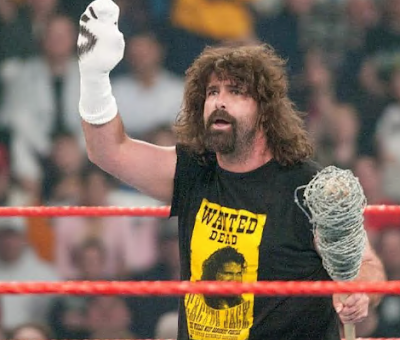Managing Editor
The process of creating a nickname for professional athletes has always fascinated me.
 |
| Billy Scripture's nickname given to him by his fellow ballplayers was 'Old Hardrock.' He could demonstrate chewing the horsehide off baseballs for anyone who asked him to. COURTESY PHOTO |
Basketball has Dennis “The Worm” Rodman who earned the name for the way he wriggled around when playing pinball, Larry “The Hick from French Lick” Bird, who grew up in French Lick, Indiana, and David “The Admiral” Robinson whose nickname pays homage to the time he served in the U.S. Navy.
But my all-time favorite nickname for an athlete is for a minor league baseball player you might not have heard of.
Billy “Old Hardrock” Scripture had that nickname hung on him supposedly for his penchant for munching on rocks with his strong teeth. It wasn’t true, he preferred chewing the horsehide off baseballs.
Earl Wayne “Billy” Scripture had been a star high school quarterback, wrestler, and baseball outfielder at Princess Anne High School in Virginia and earned a baseball scholarship to play at the college level for Wake Forest University. He led his team to consecutive Atlantic Coast Conference titles and was honored as a NCAA All-American before being drafted by the Baltimore Orioles to play professionally.
Working his way up to the Orioles’ top farm team, the Rochester Red Wings in 1968, Scripture was admired for his on-field hustle and never-say-die attitude. He personified toughness, refusing to acknowledge pain when hit by a pitch in his jaw.
According to Scripture, his practice of chewing on baseballs began as a nervous habit while sitting in the dugout at the old Silver Stadium in Rochester and watching his friend and teammate, Merv Rettenmund, batting during games.
Instead of chewing bubble gum, tobacco or sunflower seeds, Scripture would use his teeth to loosen up the heavily stitched seams and then proceed to rip the cover off baseballs. It was a unique talent that drew the scorn of dentists but bonded him forever with teammates and fans.
His ascent to the major leagues stalled because of Scripture’s inability to hit a curveball and by 1972, his playing days were at an end without ever reaching the majors. He was offered a minor league managing position by the Kansas City Royals and skippered teams in the Midwest League, the Gulf Coast League and the Southern League. In 1978, Scripture managed a minor league team for the Pittsburgh Pirates in the Western Carolina League, and he returned as a manager one last time in 1984 to guide the Nashua Pirates in the Eastern League.
Among the players he managed who reached the majors are outfielder Bobby Bonilla, pitcher Dave Dravecky and infielder Ron Washington, who currently serves as the manager of the Los Angeles Angels.
To impress young ballplayers with his toughness, he once climbed a light tower to do chin-ups, or he would let the pitching machine bounce fastballs off his chest.
But nothing compared to Scripture demonstrating for sportswriters while managing the Jacksonville Suns in 1975 how to chew the cover off a Spaulding baseball.
He explained that his frustration intensified as a manager, and he would chew baseballs to alleviate gametime stress.
“Only lost one molar so far, and that's a whole lot less expensive than an ulcer operation," Scripture told reporters.
The trainer for the Royals, Mickey Cobb, said that Scripture was oblivious to pain and before a spring training game, he noticed Scripture had 19 blisters on one hand from hitting fly balls for outfielders.
Cobb said Scripture walked into the dugout and poured rubbing alcohol over the blisters and refused any Band-Aids for them. Later that same day, he saw Scripture having other coaches hit fly balls to the outfield so he could demonstrate to players the best way to run head-on into a chain-link fence.
After leaving baseball, Scripture spent a lot of time training labrador retriever dogs. He was a duck hunting guide and would compete in trap shooting competitions. He became so proficient at it that he became a director of trap and skeet shooting clubs in Indiana, Nevada, Texas, and Florida.
In 1968, I remember going to a Rochester Red Wings game against the Toledo Mud Hens and when the game ended, a few players stood by the dugout signing autographs for fans. I approached Billy Scripture and asked him if he would sign my program for the game.
“Why would you want a silly autograph when you can have something of mine even better,” he asked me.
Giving him a puzzled look, Scripture handed me a tiny knawed-on piece of a baseball. It sat for a week on my bedroom dresser before my mother tossed it in the garbage as if it were trash.
Who knows what it might be worth today?


